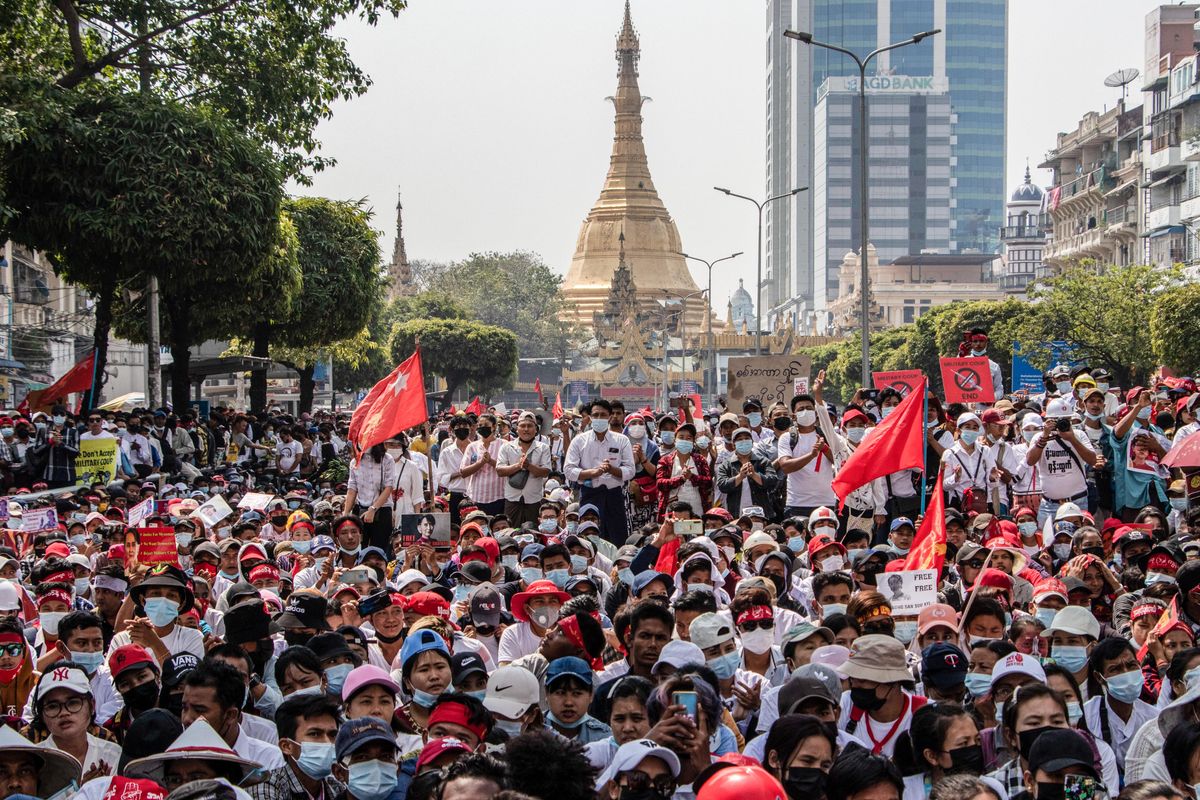Defying a threat by the ruling generals to use lethal force to disperse them, anti-coup protesters again turned up across Myanmar on Monday to demand a return to democracy. The country's political crisis remains in flux since the military siezed power three weeks ago: a nationwide strike has ground the economy to a halt, while hundreds of demonstrators have been arrested, and at least four have been shot dead. But — to the surprise of many observers — the junta has yet to crack down as hard as it did against unruly students in 1988 and rebellious Buddhist monks in 2007.
It's a chicken-and-egg scenario: as the military shows more (unprecedented) restraint, its opponents feel emboldened to flock to the streets. Why is this happening, and what does it mean? Part of the answer lies in how Myanmar itself has changed over the past decade.
The people got a taste of democracy. Unlike in previous crises, most protesters are not calling for an abrupt end to a decades-long military regime but rather want Myanmar to go back to the pre-coup status quo on January 31 — especially young people.
Myanmar has one of the youngest populations in Southeast Asia, with a median age of 28.2, and five million voted for the first time in the November election. For the youth, democracy is not a nice-to-have but the only possible system, as well as the only one they know.
Like their peers calling out the decaying military-royal stranglehold on power in neighboring Thailand, young people in Myanmar are unwilling to wait for the junta to deliver on its promise of holding a fresh election in a year. They are angry at the generals for taking away their basic freedoms, and are not as afraid as their parents of the junta's goons because most have only faint memories of iron-fisted military rule.
The junta can't party like it's 1988 (or 2007). When the military crushed the last two major uprisings, it did so under the cover of news blackouts. That's impossible in 2021 because of the World Wide Web, which pre-democratic Myanmar was barely connected to.
Short of taking the entire country offline, the generals have so far imposed a nighttime "internet curfew" and blocked access to social media. However, tech-savvy protesters have been able to circumvent these restrictions, allowing them to continue to mobilize on the streets and broadcast their actions. A brutal repression of the protests would likely be live-streamed on Facebook, a nightmare scenario for the junta.
The military's decision to block Facebook is arguably the most unpopular thing the junta has done since it seized power in a country where for about half the population, the platform "is the internet" and the preferred way to communicate with others. Facebook has responded by unfriending the generals, who risk even more public discontent if the ban continues much longer.
The economy loves freedom. When Myanmar started embracing democracy in the 2010s, it also opened up the economy to foreign investment and, more importantly, to the private sector. A nationwide strike would have been unheard of just ten years ago, when most businesses were directly or indirectly controlled by the state.
Now, private sector employees cannot be forced to go to work by the state, nor risk getting fired for attending an anti-government rally. If the protests continue, striking workers could do severe damage to an economy that was already struggling before the coup due to COVID.
Moreover, prolonged economic disruption will sooner or later hit the junta where it hurts the most — its pocket. In 2011, the military used an opaque privatization law to acquire hundreds of thousands of former state-run enterprises in key sectors like beer, tobacco, mining, tourism, real estate, and telecommunications. If the economy feels more pain, the generals will be imperiling their own business empire.
What happens next? Whether Myanmar's post-coup crisis will be resolved peacefully or not remains to be seen, but it's clear that the generals overplayed their hand. The country has changed — and they missed it.

















